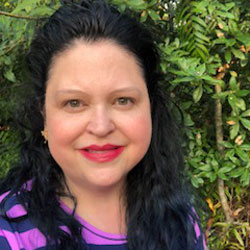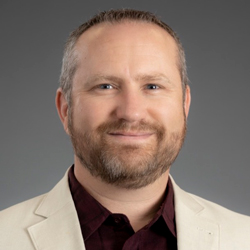The Quest to Bridge the Gap Between HR Practice and HR Science
By Shellie Halstead, Ed.D., SHRM-SCP and Professor Abram Walton, Ph.D.
In Florida, there are estimated to be around 104,000 Human Resources professionals ranging from entry level assistants to CHROs working in organizations of all sizes and tasked with a dizzying and burgeoning array of responsibilities. While HR departments look different everywhere, one common thread is that we are problem solvers, connectors, and integrators. It’s insufficient to simply say we are diverse thinkers, when really we are multi-faceted, multi-industry, multi-domain thinkers. Some of the greatest challenges an organization faces are related to its people, and HR is there to support, enable, and overcome.
So how do HR professionals typically approach problem solving? We frequently ask others, both in and outside of the HR domain. This tactic can be a help and a hindrance. It’s a help because we have become excellent networkers as a function of getting our jobs done. However, since the advice we receive is often sound advice, we are less likely to question or recognize the times when advice flies in the face of science. There are so many technicalities, formalities, and legalities, sometimes we tend to think the best bet (or to CYA) is to rely on those who have gone before. But what if those who are providing us advice merely gained that insight by employing the exact same tactic? This leads us to one of the causes of the repeated promulgation and proliferation of deep-rooted mythology, misinformation, bad HR science, and poor advice. Therefore, this tactic can also be a hindrance because it is often easier and more expedient to lean on the advice of peers un-supplemented by the original science, or data, or what the research literature says.
Science actually supports our concerns in this area and shows that we tend to accept our peer’s experiences and avoid validating decisions via academic research, with only 1% of practitioners reading academic journals. That is a staggeringly low percentage of professional HR staff reading the leading research in the field. At the same time, we regularly hear that practitioners are looking for scientifically sound, unbiased advice on solutions to their problems. There are some obvious barriers that have been identified including lack of access to peer-reviewed research, lack of clear practical applications, and lack of perceived relevance or immediate/direct applicability, all exacerbated by writing styles that are targeted towards other academic and scientific researchers with doctoral level statistics and methods classes under their belts. These barriers are real, but perhaps the root cause of them all lies with the differences between the expectations of the academic researcher versus those of the practitioner.
Historically, the role of researcher has been perceived to be at odds with the role of practitioner. These stereotypes are often portrayed by a juxtaposition between the ivory tower academic who is focused only on tenure versus the boots on the ground professional who is throwing whatever seems to stick at a problem and hoping it works out. Over the years there has been progress away from these stereotypes and towards a world of work supported by theory and a world of research informed by real life needs.
So what can we do about it? We start with ourselves and work outward. Just imagine you were exactly the right person, with exactly the right qualifications – what would you have done in the next year that collectively levels up yourself, your organization, and your profession?
Working on me
First and foremost, science shows that the most distinguishing factors between the successful-few and average-many is their internal desire or need for personal mastery and purpose, their level of intellectual curiosity (coupled with self-directed learning), and grit. Simply put, be curious. Ask questions. Seek to learn and grow. Understand the gap between research and practice and its impact on the profession and on our daily work. We must be interested in the journey of expanding our knowledge in a meaningful, data driven way. Seek out books, articles, podcasts, meetings, conference sessions, inter alia, from people who intentionally use the language of HR, data, and science. Attain SHRM certifications and advanced degrees. Don’t let imposter syndrome (or external, negative personality types) keep you from pursuing your drive for mastery and intellectual curiosity. We realize no one person can keep up with all of the data-driven best practices, but you can take intentional steps to expand your circle. Be a myth buster (or at least a myth validator), but not a myth spreader; be a networker of top minds so you have sounding boards of data-driven people, the full benefits of which are unknown and intangible.
Working on my organization
There’s a perception that using research and asking questions takes more effort than it’s worth and the faster, more expedient path is to just go with what we think we already know. But imagine the cost of proceeding without asking those questions or doing the research. In hindsight, how many projects could have been saved or failures averted if we had asked the questions up front? More importantly, could things have been improved if we had gotten outside of our echo chambers of insight and opinion?
Cultural entrenchment and change resistance is not new, so don’t be surprised if you experience the ‘not invented here syndrome’ – it’s not uncommon for people to mock what they do not understand or to fear the unknown. Don’t let those who purport to know it all because of their experience dissuade you from embarking on your own journey of process improvement, validation, and innovation.
Be an example of displaying intellectual curiosity and promoting data-driven decisions. Enlist others in your organization to go on the journey with you. But remember that culture trumps strategy. Academic literature posits that bringing others along through techniques such as vicarious modeling or enactive mastery helps to create a culture or critical mass of people with whom there is an open-minded and inquisitive rapport. If you’re struggling to enlist others in your organization, reach out externally and find some partners. You’ll quickly learn you are not alone.
Working on the profession
While there are around 104,000 HR professionals in Florida alone, only about 16,000 are plugged into SHRM or local chapters. Doesn’t this enormous gap make us want to ask – where are all the others? How are they leveling up their expertise and credentials? Where are they finding answers to their questions, or advisors and peers for problem solving? Where are they turning for ideas and best practices? More importantly, this gap emphasizes the need for us to question some of the advice we receive and to at least seek out others to help us improve our own data-driven decisions.
Consider when was the last time your chapter decided to have a brown-bag around an academic paper or to invite a professor from a local university to speak at your chapter? When have you reached out to a university to participate in a research study? Are there ways you can contribute to studies and data, partner with academic institutions and researchers, co-author, and deepen/expand your own credentials? How can you encourage others to do the same? Start by encouraging your organization to join or host something, and begin your journey on becoming a thought leader in your field; remembering that the journey is most enjoyable when you take others with you?
If you are still looking for a place to start, then let us encourage you to reach out directly to the HR Florida Analytics and Innovation Research Committee – that’s what we’re here for. One of the goals of HR Florida is to promote activities that serve the HR professional and the broader profession. Part of the role of the HR Florida Analytics and Innovation Research Committee is to be a bridge that brings cutting edge research to practitioners, as well as bringing practitioner feedback to researchers about where further investigation and solutions are needed most. We do this by conducting voice of the customer research, partnering with academics to participate in research studies, bringing academic-led conference sessions to HR Florida events, and writing articles for HR Florida publications, inter alia. We live, eat, and breathe this type of work and would love to help you get plugged in.
Until then, happy questing!

Dr. Shellie Halstead has worked in human resources in the United States and Japan since 2004, and is currently the Director of Strategy for the Lee County Tax Collector. Her former roles include CHRO and Director of Performance, Innovation, and Training. She teaches the Human Resources course in the DBA program at Florida Tech and serves as a committee member for doctoral dissertations. She earned her doctorate in Organizational Leadership, her SHRM-SCP, a Black Belt in Lean Six Sigma, and is a certified Project Management Professional. Her interest in the field of innovation has led her to serve as a United States Delegate to ISO’s Technical Committee for Innovation Management Standards (ISO/TC 279) Terminology and Definitions working group. She is also the liaison for ISO/TC 279 to ISO/TC 260 – Human Resource Management. Shellie has served on the SHRM Southwest Florida Board as President, President-Elect, Past President, Scholarship Chair and Director of Workforce Readiness and is a member of the HR Florida State Conference Committee.

Dr. Abram Walton is a Full Tenured Professor of Management at Florida Tech. Specializing in Management and Innovation, among other areas, he also directs Florida Tech’s Center for Innovation Management & Business Analytics (CIMBA). With over 20 years of research experience, Dr. Walton has made significant contributions to fields such as Innovation Management, Human Capital Management, Leadership, Business Analytics, and Product Lifecycle Management. He is a renowned speaker at national and international conferences, consulting with major corporations like NASA, GE, Alstom, Harris, Bristol Myers Squib, and Delta on topics including leadership, lean process improvement, innovation strategies, and new product development. Dr. Walton’s diverse expertise, extensive publications, and involvement in academic journals and non-profit boards demonstrate his commitment to advancing knowledge and fostering innovation.